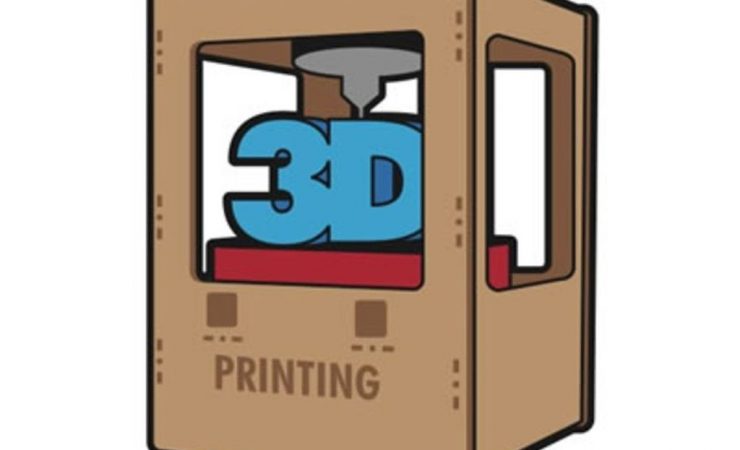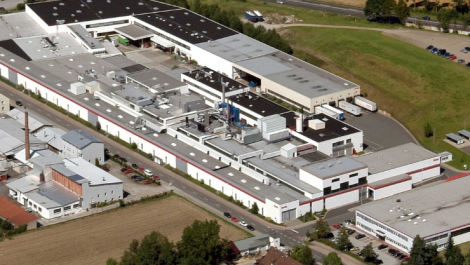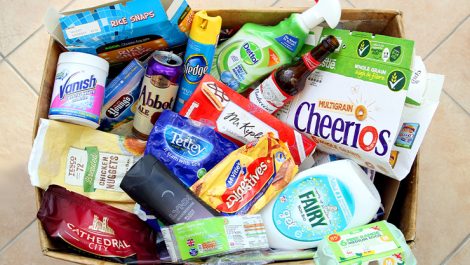The Coronavirus outbreak, and associated effects on global economies and industry, obviously cannot be considered beneficial to anyone. However if there is one part of the printing sector that has used it as an opportunity to showcase what it is capable of, it’s 3D print.
Many manufacturers of 3D printers, and the companies operating those machines, have more than played their part in the battle against this pandemic.
For example Ricoh 3D has been offered to assist in the production of ventilators, so desperately needed by healthcare systems the world over. The company has contacted Make UK and the Government to confirm it is ‘willing and able to support an increase in mass ventilator manufacturing.’ The company is ‘confident we can help by using additive manufacturing to produce vital components for ventilators both quickly and cost-effectively.’
In Italy Weerg 3D has been busy producing valves for emergency respirators as well as making its production capacity available to hospitals to manufacture other parts of medical instruments via 3D Printing. It’s printers are able to make a single valve or up to 5000 out of thermoplastic materials such as Nylon PA11 and Nylon PA12, which are resistant and ideal for creating functional prototypes and final parts.
Y Soft is using its 3D printers to produce protective face shields and binder strips for hospitals across the world. The face shields are being donated for free to hospitals to help protect medical workers. The shields, which can be re-sterilised, use a piece of shaped plastic to cover the face and a 3D printed ‘frame’ is used to connect the plastic shield, with a simple rubber strap to affix it to a person’s head.
3D printing specialist Ultimaker is making its global network of 3D printing hubs, experts, and designers directly available to hospitals in need of tools and applications that can be produced via 3D printing. It has also launched a series of initiatives on its website intended to connect people in need with 3D printers and to provide help designing parts that are in limited supply.
Protolabs is putting its expertise and rapid production methods to use producing Coronavirus test kits. The first box containing components for COVID-19 test kits was shipped on 19 March, after a turnaround of only 24 hours. The company is now working on an order for over 10,000 units, all of which will eventually for part of test kits.
Barcelona-based BCN3D has offered up its own fleet of 3D printers, 63 in total, to help manufacture medical supplies that are in short supply around the world. This includes a hands-free door handle opener, printed as a single piece on desktop 3D printers and that can be made in under 4 hours.
American company Airwolf3D is another company to have volunteered its own fleet of 3D printers to anyone who needs respirator valves or other medical components produced. The company is also offering remote technical support for medical staff that would like to know more about 3D printing.
A Chinese 3D printer called Winsun has produced 15 quarantine rooms and provided them to Xianning Central Hospital in the Hubei Province. The hospital, close to Wuhan, was suffering from a lack of hospital beds using solid urban construction waste, Winsun crushed, ground and fabricated small individual quarantine booths to receive the strain on the hospital.The rooms’ interiors are decorated and have their own water and electricity supplies.
Materialise has released files for a 3D printed hands-free door handle attachment. Door handles are an obvious medium for the virus to pass from one person to another and the 3D printable add-on allows users to carry out the lever action required to pop open most modern doors using their elbows.
Volkswagen has announced a task force that will assess and adapt its car-making capacity and manufacturing facilities to the production of hospital ventilators and medical devices. Volkswagen has over 125 industrial 3D printers and is assessing how it can use 3D printing to produce in-demand medical equipment to tackle the COVID-19 pandemic.
5000 face shields were 3D printed in under a week by Stratasys. The shields have a 3D printed frame and transparent plastic shield to provide protection to healthcare workers, it will be provided a no cost to medical personnel.
The UK’s Photocentric has demonstrated its ability to 3D print valves for respirators with a trial run of 600 units. While the designs have not yet been approved for use in the ventilators the company is gearing up should it be required to produce the vital components. Photocentric calculates that working 5 days a week and printing 24 hours a day the company’s inhouse 3D printers could produce more than 40,000 of the valves each week.





